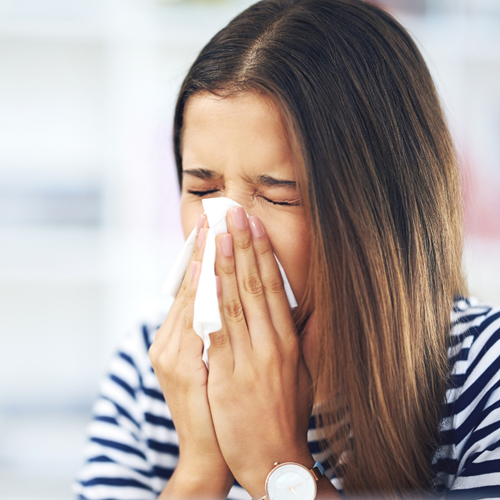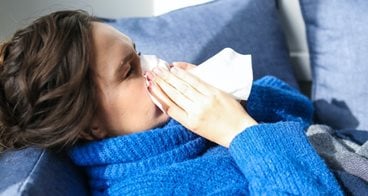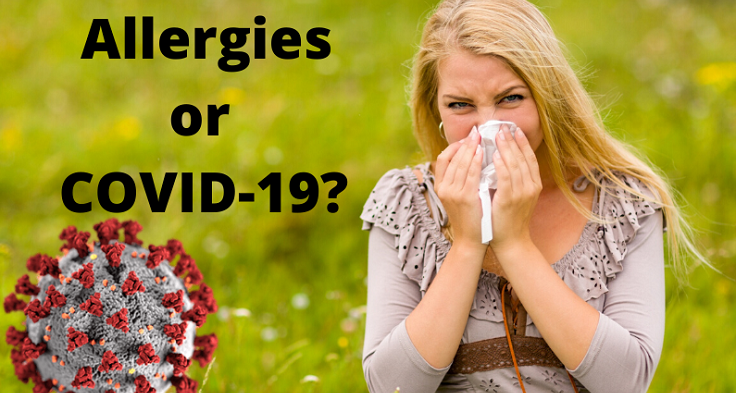Tips and Remedies for Allergy Season

For those of us who suffer from seasonal allergies, springtime means flower buds and blooming trees as well as sneezing, coughing, a runny nose, post-nasal drip, and itchy or watery eyes, to name a few bothersome symptoms.
What are Seasonal Allergies?
Allergies in the spring are known as spring allergies, hay fever, or allergic rhinitis. Pollen released from trees and grasses is the primary cause of spring allergy symptoms. Pollen is spread by insects, like bees, and through the wind.
An allergy occurs when a person’s immune system overreacts to a seemingly harmless substance known as an allergen. If you have allergies, the body produces antibodies that travel to cells and trigger the release of histamine and other chemicals. These chemicals—such as histamine—contribute to inflammation and cause symptoms commonly seen with allergies.
Here are some simple strategies to help keep your seasonal allergies under control.
9 Tips to Avoid Allergy Triggers
To minimize your symptoms, you may try the following:
Check local pollen counts and limit time outside when pollen levels are high. I like to use the interactive national allergy map found at pollen.com. I highly recommend their easy-to-use Allergy Alert app, which features daily pollen counts and forecasts. You can check multiple locations and get detailed information about the specific type of pollen prevalent in your area.
Stay indoors on dry, windy days. The ideal time to venture outside is after it rains, which helps clear pollen.
Do not mow the grass or tend to your garden.
Keep all windows closed, if possible.
Bathe and wash hair daily before bed to remove pollen.
Change and wash clothes after being outdoors.
Dry clothes and linens in a dryer instead of outdoors, as pollen sticks to them.
Remove shoes before entering the house.
Wear hats and sunglasses outside to limit pollen entering your eyes and landing in your hair.
Keep the Right Medicines Handy
Antihistamines and nasal sprays can help you prevent or reduce the severity of your allergy symptoms. These medications usually help you comfortably get through the day.
Allergy medications are often more effective when used consistently rather than just as needed and when started early in the season, before the onset of allergy symptoms. Having a plan in place and starting the allergy plan on time can also help decrease the severity of seasonal allergy symptoms.
Many allergists recommend:
Oral antihistamines – Antihistamines help relieve sneezing, itching, a runny nose, and watery eyes. Examples of oral antihistamines include loratadine (Claritin, Alavert), cetirizine (Zyrtec Allergy), and fexofenadine (Allegra Allergy).
Decongestants – Oral decongestants such as pseudoephedrine (Sudafed, Afrinol, etc.) can temporarily relieve nasal stuffiness. Decongestants also come in nasal sprays, such as oxymetazoline (Afrin) and phenylephrine (Neo-Synephrine). Only use nasal decongestants for a few days in a row. Longer-term use of decongestant nasal sprays can worsen symptoms (rebound congestion).
Nasal sprays – These sprays can ease allergy symptoms and do not have serious side effects. Most doctors recommend steroid nasal sprays as their first-choice treatment to reduce nasal symptoms. Other options, like an antihistamine nasal spray, can be used with a steroid spray.
Eye drops – Eye drops can temporarily relieve your eye’s redness, itchiness, and swelling.
It is always good to check with your allergist to determine what medication or combination is best for your health needs.
Natural Remedies for Allergies
Steam or rinse the pollen away
Steam inhalation is a good way to soothe and open the nasal passages, making it easier to breathe. Rinsing your nasal passages with saline solution is a quick and effective way to relieve nasal congestion. Some people use a neti pot or a spray bottle to help clear the nasal passages. Rinsing helps flush out mucus and various allergens from your nose, making it easier to breathe.
Ginger
Allergy symptoms, such as a stuffy nose, itchy eyes, and a sore throat, result from swelling and irritation. Ginger can help ease these symptoms naturally.
People have used ginger as a natural remedy for nausea and joint pain for thousands of years. Ginger contains ingredients that reduce swelling, which may also help with allergies. Fresh and dried ginger work the same way. Add ginger to stir-fry, curries, and baked goods or make hot or iced ginger tea.
Vitamin C
While it is a common superstition that vitamin C prevents common colds, it may help shorten the duration of a cold as well as offer benefits for allergy sufferers. Eating foods high in vitamin C has been shown to decrease the inflammation of the upper respiratory tract caused by pollen from blooming plants. During allergy season, you can load up on high-vitamin C citrus fruits like oranges, grapefruit, lemons, limes, sweet peppers, and berries.
Turmeric
Turmeric is well-known as an anti-inflammatory powerhouse. Its active ingredient, curcumin, has been linked to reduced symptoms of many inflammation-driven diseases and could help minimize the swelling and irritation caused by allergic rhinitis. Turmeric can be taken in pills, tinctures, and teas or added directly to certain foods, especially vegetable dishes.
Spring allergies affect millions of people each year. Hopefully, these tips will help you reduce your symptoms and savor the season’s beauty.
About the Author
Kaitlin (Kait) Schuster is a student at Cornell University who loves the great outdoors and cooking in her spare time.



